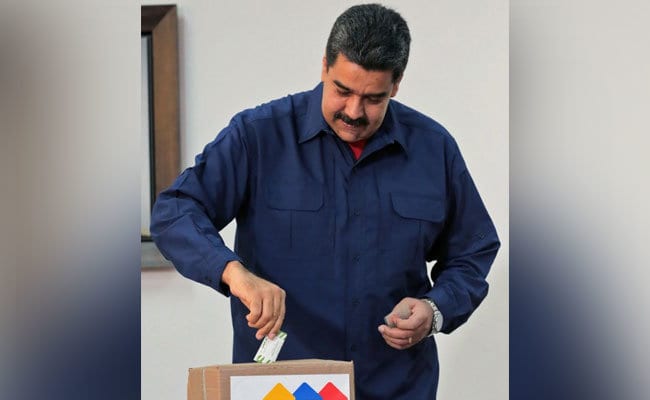(BBC) After years of turmoil which at one point saw almost daily street protests, President Nicolas Maduro is looking to consolidate his power.
The opposition, however, refuses to even take part.
Who’s going to win?
Most analysts agree that President Maduro is likely to win on Sunday May 20. His opponents say they expect widespread electoral fraud – and are resigned to it.
The elections were supposed to be held in December 2018, but the National Constituent Assembly, filled exclusively with Mr Maduro’s supporters, brought them forward.
The opposition Democratic Unity coalition is currently divided, and says the elections have been moved to take advantage of its disarray. Its two biggest candidates were also barred from running, and others have fled the country.
So there’s no opposition taking part?
Not quite. There are a handful of minor candidates who don’t stand any real chance – and one viable alternative to Mr Maduro.
That’s Henri Falcón.
Mr Falcón was a governor under former President Hugo Chávez. He came from the same socialist party as President Maduro, but left in 2010 to join the opposition.
So, if there’s an opposition boycott, why is he running?
Mr Falcón says the only way to dislodge President Maduro is through elections. He believes the majority of Venezuelans want rid of the controversial president – and that they should be given the chance to vote him out.
The rest of the opposition, however, has frowned on his breaking ranks – with some even branding him a traitor.
But is the election legitimate or not?
Mr Maduro’s camp and the government claim the election is a fair process. Not everyone agrees.
Part of the reason behind the opposition boycott is the result of elections for state governorships last year. Mr Maduro’s party won 17 of 23 states – and his opponents cried foul.
That was after the company that makes Venezuela’s voting machines said, in July last year, that the figures had been tampered with during the controversial election of the constituent assembly.
It does not help that the electoral commission is mostly made up of government supporters – like the powerful constituent assembly and the Supreme Court.
All of this had led to a situation where international observers like the EU and US have suggested they might impose sanctions on Venezuela if democracy is undermined.
And some of Venezuela’s Latin American neighbours may not officially recognise the outcome.
Given all the uncertainty, it is expected that many citizens simply will not vote at all.
What about ordinary Venezuelan people?
Things are hard in Venezuela – with an inflation rate measured in several hundred percent.
An economic crisis means the economy has shrunk dramatically every year – so for the average citizen, there’s a shortage of basics like food and medicine.
In some poorer parts of the country, 70% of children suffer from malnutrition.
The national currency, the Bolívar, is virtually worthless, and long queues form at banks where there simply isn’t enough cash to make purchases.
Residents carry large bags, filled with banknotes – or try to pay with cards where possible.
Faced with the difficulties of life at home, hundreds of thousands have fled the country – many to neighbouring Colombia or Brazil.



